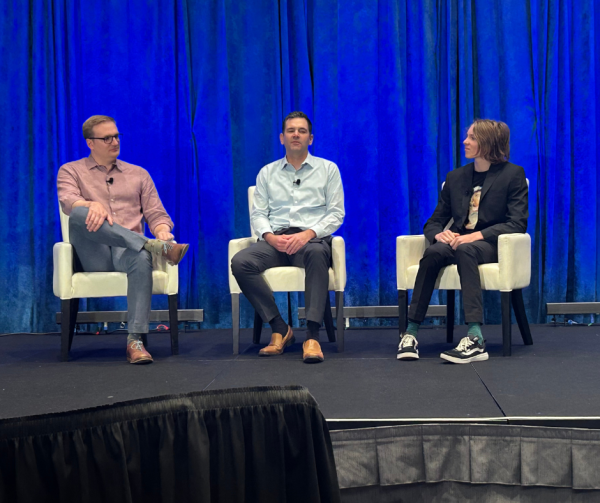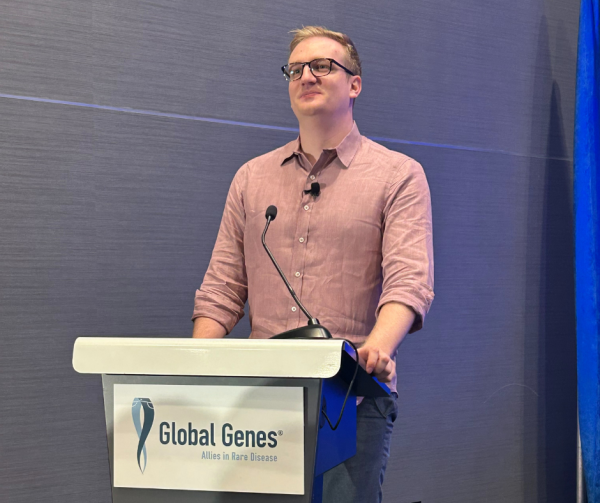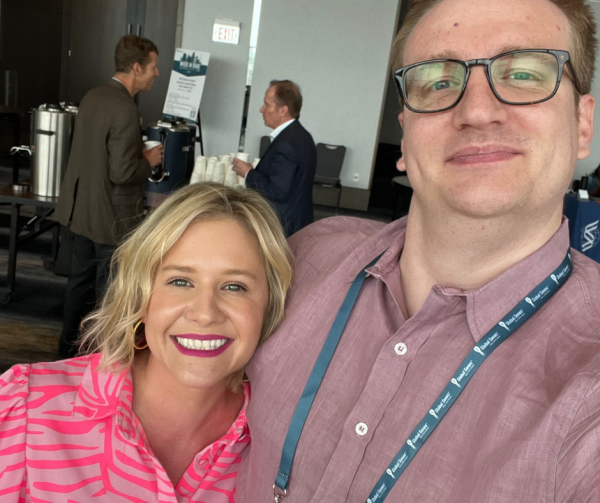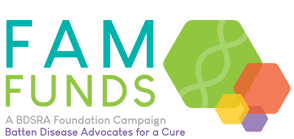KANSAS CITY, Mo. – The Batten Disease Support, Research, and Advocacy (BDSRA) Foundation was represented at this year’s Global Genes RARE Advocacy Summit in Kansas City, Missouri. BDSRA Database Manager Noah Siedman attended the event and was featured as a speaker on the Rare Siblings panel.
Below, Siedman analyzes the sessions he attended, his message to the audience during the Rare Siblings panel, and his overall takeaways from the event and how they can help the Batten disease community.
What event did you attend and where did it take place?
I attended the Global Genes 2024 Week in RARE, which took place in Kansas City, Missouri.
How did you prepare for your presentation during the Rare Sibling Panel? What was your main message and what led you to presenting that message? Could it help Batten SIBs?
I think that the BDSRA SIBs program is incredible and a great source of inspiration for me when I speak about my own journey. One lesson that I have learned and brought with me to this panel was the importance of structured independence – SIBs leading SIBs towards a shared goal is often more effective than when that guidance comes from an external source. From my own experience, I try to highlight a few things; the importance of teaching all siblings to advocate for themselves – everyone’s journey is different and the best way to get insight into someone’s needs is to ask them. I always caution people to, when appropriate, ignore advice. There is so much wonderful, heartfelt advice (my own included) but those things don’t make it right for everyone, taking advice that resonates with you and giving yourself the grace to ignore it when it doesn’t is an important skill for both siblings & their caregivers. Lastly, I like to remind people that “normal” is meaningless – context is what matters, and as long as you recognize that context you will find much easier insight into your own needs and strengths. I would love to share these things with our Batten SIBs, but to be entirely honest, I think that they have already learned these lessons and are actively teaching them to new SIBs each year!


Above: Noah speaks on the Rare Sibling Panel at the Global Genes RARE Advocacy Summit on Friday, September 27, 2024.
During this conference, you attended a session titled, “The Role of Natural History Studies.” We’ve long stressed the importance of natural history studies for the Batten community and completing our Family Register. What additional insight did this session offer about natural history studies?
A key takeaway from this session was the importance of working with the FDA as early as possible when considering a natural history study – being proactive about our relationship with regulatory bodies like the FDA is a critical pathway towards accelerated & smooth enrollment. They also emphasized the importance of patient advocacy organizations, like BDSRA, in helping to form and facilitate that relationship in conjunction with our clinical, research, and industry partners. All of the different stakeholders need to have a voice in how these studies are designed, what information they capture and what the endpoints are. It is also important that the advocacy organizations help bring the patient’s voice into this conversation by highlighting good patient advocates and helping to give those advocates the resources they will need to effectively represent the people for whom they are caring.
Some other sessions you attended included “Mastering Rare Disease Conference Planning” and “Innovative Funding Strategies.” Fundraising for BDSRA and planning the BDSRA Annual Family Conference are both challenging. Fundraising is also involved with planning the conference. Did these sessions offer any ideas?
One point that I noted in the conference planning and funding strategies presentations was the importance of being efficient with the time of our patient community. All of the different sources of funding need to interface with the patient community for their own reasons – and opportunities for those stakeholders to come together and interface with patients is a great way to appeal for more funding. The presenters also provided a wealth of materials on ways to fundraise, including examples of successful campaigns to reference and innovate. I am looking forward to reviewing the recording of both of these presentations and taking some additional time to unpack all of the insights.

Noah (left) is pictured with his mother, Jennifer (right), who serves as the Director of Community Engagement for the Courageous Parents Network.

Noah (right) is pictured with Effie Parks (left), the creator and host of the Once Upon A Gene podcast. Parks is a rare disease mother to her son Ford, who has CTNNB1 syndrome.
What were some of your other takeaways from this event? How can that information help benefit/educate the Batten community?
Global Genes was a great opportunity to connect with our peers in other advocacy organizations, build relationships, share information, and support one another with resources. I really believe that each patient organization can’t make everything themselves, we can share and borrow from one another and benefit from all the hard work – without overburdening any one group. I have met a ton of incredible insight, tools, and brilliant leaders all of whom are happy to work with us in their area of expertise or strength so that we can bolster one another.
What was the primary theme of your conversations with fellow attendees?
We spoke a lot about language – how we talk to one another and how we talk to our patients, our researchers, clinicians, industry partners, and regulatory bodies. It is so hard for all of these different groups to communicate perfectly, but everyone has found a few lines of communication that work well, and so we shared those to help each other build greater fluency.


